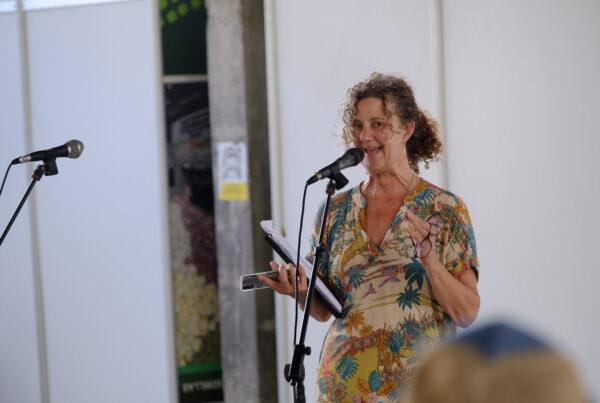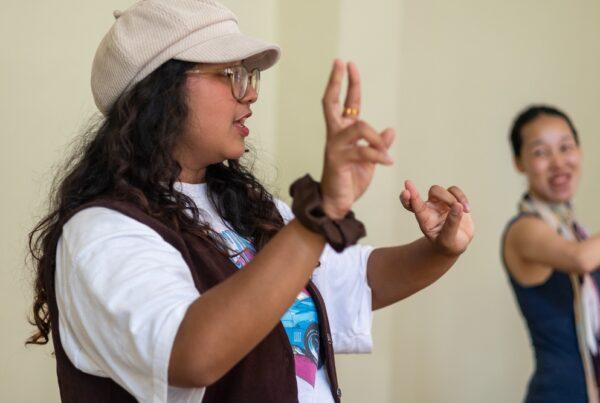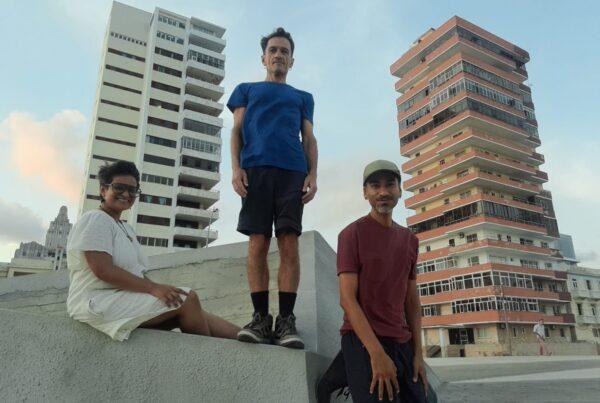
from the play ‘The Stolen Prince And The Lost Princess’
Following the performance of ‘The Stolen Prince And The Lost Princess’ by ‘Little Theater Duško Radović,’ I had the opportunity to talk with the talented young actor Aleksa Jovčić, who skillfully portrays Joy, the Chinese prince, and later, the emperor. Interestingly, this marked his inaugural professional role after his Bachelor studies at the Academy of Arts, University of Novi Sad. It’s unconventional for young actors in Serbia to commence their professional journey in the theatre dedicated to children and youths.
Divna Stojanov: What led you to dive into children’s theatre right after finishing your bachelor’s degree?
Aleksa Jovčić: I believe it was destiny (laughs). During my last year of studies, there was a casting at the ‘Little Theatre Duško Radović.’ Needless to say, castings are not an everyday occurrence, so I didn’t hesitate about whether to apply or not. At one point, I asked myself if I knew enough about theatre for children, but I decided to approach it with the same passion and concentration as if it were a performance for adults. I was aware that I shouldn’t underestimate the young audience, a mistake I’ve seen some of my colleagues make. In the end, I got the part.
Divna Stojanov: And you are a magnificent choice for the role of Joy! You are also involved in three plays at the Youth Theater in Novi Sad and a couple of plays dedicated to adults. Is there any difference in acting styles?
Aleksa Jovčić: I don’t think there should be any difference. Of course, different plays, genres, and characters call for different styles. But the essence is the same – you are telling the story. For example, in the performance ‘The Stolen Prince And The Lost Princess’, director Branislava Stefanović wanted to explore the acting method and techniques used in Peking opera, which is a genre for adults but is highly interesting for all generations because it consists of great amount of acrobatics, talking to an audience, etc.

Divna Stojanov: What did you learn from this particular experience?
Aleksa Jovčić: I’m more convinced than before that I would love to perform in theatre for children, especially in Little Theatre Duško Radović, which has a great vision of what theatre addressing young audiences can and should be. In every process, I learn something new about the theatre and myself, but I feel like learning in theatre for children brings joy (no pun intended) and elation, alongside the knowledge.
Divna Stojanov: What would your advice be for students or young actors who are avoiding theatre for children because they underestimate it or for actors who fear getting engaged with this kind of theatre due to a lack of formal education?
Aleksa Jovčić: For the first group you mentioned, I would sincerely advise them to try, even just once, to perform in a play for children so that they can become aware of how tiring, yet rewarding, it can be. As for the second group, it would be more about advice to the Academy and Faculty of Drama – actors, directors, and playwrights must have more formal education. In most cases, those of us who desire to work for and with children learn from experienced and older colleagues, after university. That is a great privilege, of course, but much more could be done in the academies.
Divna Stojanov is a dramaturg and playwright. She also writes theatre reviews.






